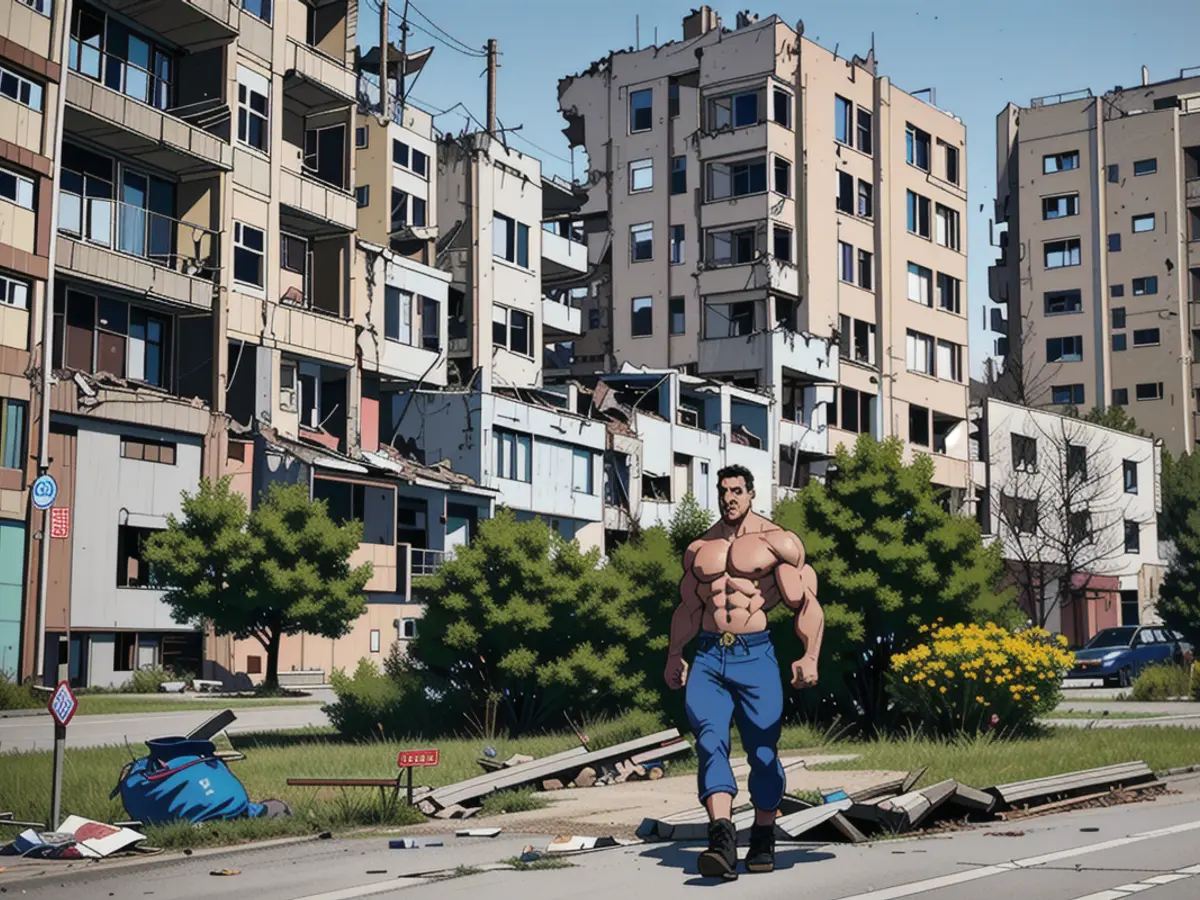Escalating Tensions in Yemen: Houthis Threaten Retaliation Following Over 70 Deaths Caused by U.S. Airstrikes at Ports
Title: Intensifying Conflict: US Airstrikes on Yemen and the Houthi Rebellion
It's a bleak scenario in Yemen, where the death toll from recent US airstrikes on an oil port in western Yemen has surged to a staggering 74, according to the Houthi-run health ministry. This grim tally marks the deadliest day since the US escalated its aerial campaign against the Iran-backed Houthi group last month.
US Central Command declared that the strikes on Ras Isa fuel port in Hodeidah province were strategically aimed at crippling the Houthis' financial lifeline by cutting off their revenue. The port, they claim, has been a lucrative source of illicit funds for the group.
However, the fatalities weren't just limited to port workers. The health ministry reported that paramedics were among the casualties, and over 170 people were injured.
In response, the Pentagon referred CNN to a previous statement from CENTCOM regarding the airstrikes.
The Houthis have vowed to retaliate against both Israel and US forces in the region, promising to continue their military operations until the Israeli aggression on Gaza ceases and the siege is lifted.
Interestingly, the U.S. has been engaged in a large-scale air and naval campaign called Operation Rough Rider targeting Houthi military infrastructure since March 2025. This operation, in response to the Houthis' attacks on commercial shipping in the Red Sea, has led to numerous airstrikes across Yemen, including urban areas such as Sanaa and governorates like Hodeida, Marib, and Saada.
However, Houthi sources report significant casualties from these attacks, with approximately 123 people killed and 247 wounded from March 15 to mid-April, and further casualties from strikes on April 17.
The Houthis' intensified attacks on international shipping, starting in October 2023, align with regional conflicts and aim to put pressure on Israel amid the Gaza blockade and wider Middle Eastern tensions. The US, supporting allied navigation and regional stability, has responded with naval escorts combined with airstrikes targeting Houthi military capabilities.
This complex and ongoing proxy conflict carries broader Middle Eastern implications, including US-Iran tensions and shifting alliances in the region. The U.S. military's Central Command has remained largely silent publicly on specifics of the campaign, with casualty figures mostly coming from Houthi sources.
[1] Enrichment Data: Commentary and Expert Insight on the US-Houthi Conflict
[2] Enrichment Data: Detailed Analysis of Operation Rough Rider and Its Impact on Yemen
[3] Enrichment Data: The Geopolitical Implications of the US-Houthi Conflict and Broader Middle East Tensions
[4] Enrichment Data: Humanitarian Impact and Calls for Ceasefire in the US-Houthi Conflict
[5] Enrichment Data: The Role of Iran and Regional Allies in the US-Houthi Conflict and Its Future Dynamics.
- The fatalities in Yemen neared 200, according to a combination of Houthi-run health ministry data and Houthi sources, as the US-Houthi conflict, particularly the recent US airstrikes on ports like Ras Isa fuel port in Hodeidah province, has continued.
- General news outlets have been actively covering the US-Houthi conflict, with intense focus on the war-and-conflicts section, as well as crime-and-justice, due to the Houthi's allegations of illicit funds obtained from the port and their vows of retaliation against Israel and US forces in the Middle East.
- The US-backed war efforts against the Houthis in Yemen have not only led to fatalities among port workers and paramedics but have also impacted the political landscape, escalating US-Iran tensions and shifting alliances in the Middle East.
- Amidst the rising casualties and intensifying conflict, humanitarian organizations and world leaders have called for a ceasefire and increased attention to the humanitarian impact on Yemen's civilian population.
- Further discussions on the US-Houthi conflict should consider the role of Iran and regional allies, as their support of the Houji group plays a significant part in the internal dynamics of the conflict and its future developments in Yemen and the Middle East.







